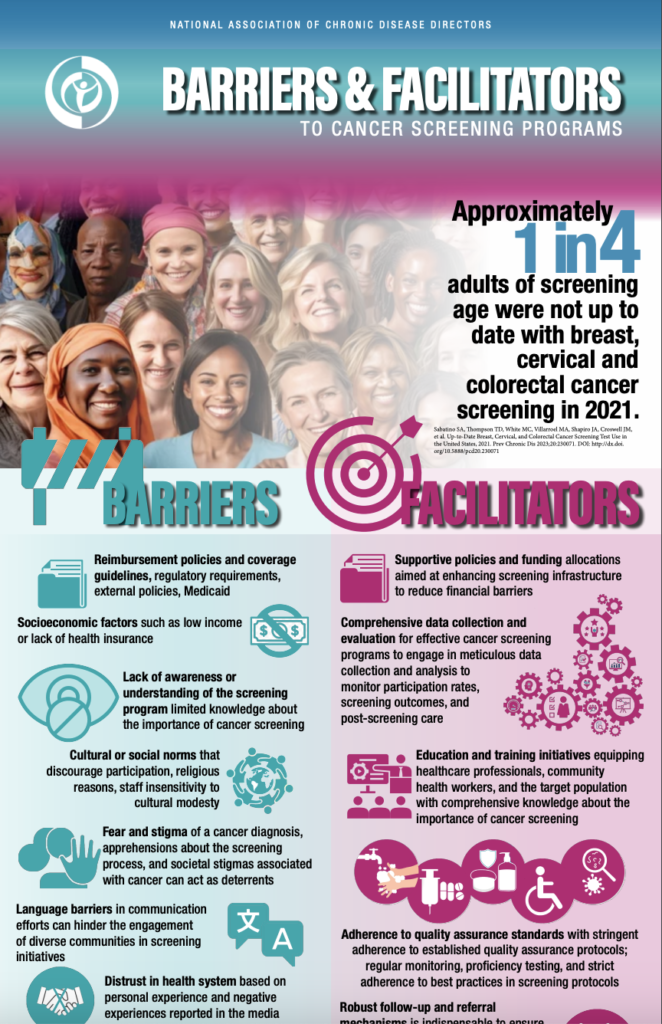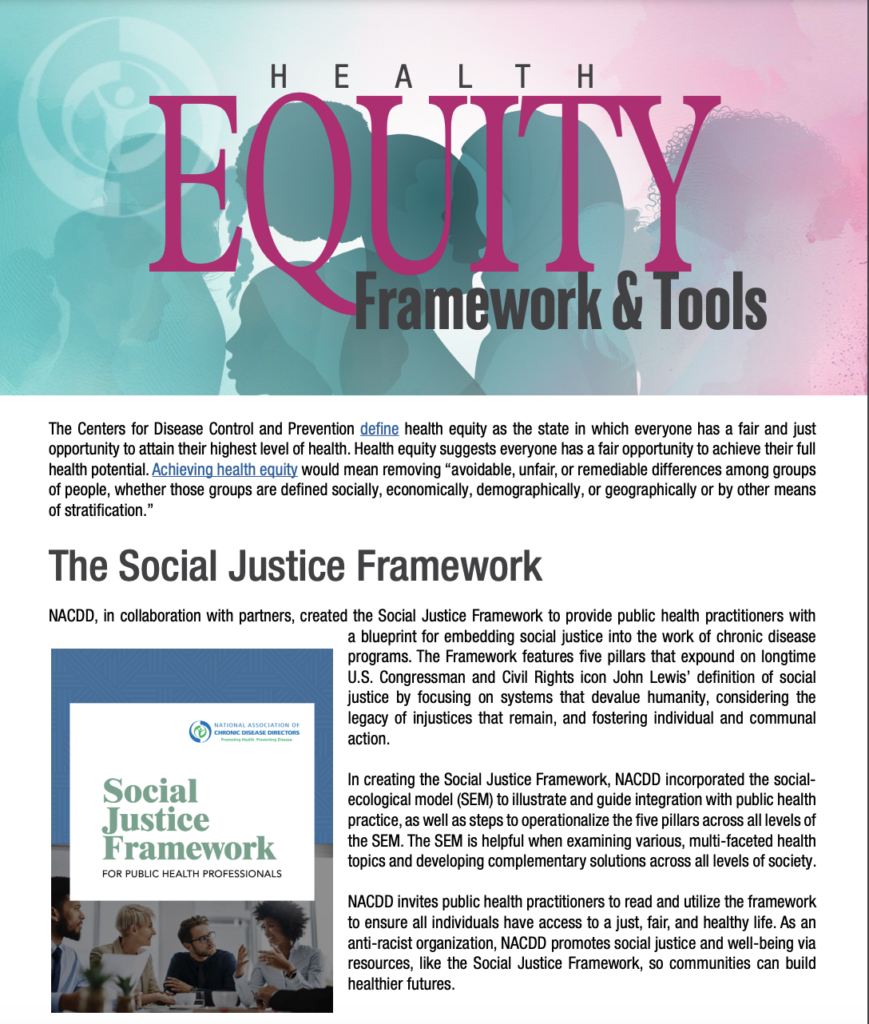NACDD recently developed two valuable tools for addressing health disparities and improving access to cancer screening. Addressing health disparities and improving access to cancer screening is a crucial goal in the Cancer Peer-to-Peer Learning Program (P2P). P2P is a recipient-informed learning and engagement opporunity that supports recipients of the National Breast and Cervical Cancer Early Detection Program (NBCCEDP) and the Colorectal Cancer Control Program (CRCCP) to engage with their peers on important topics. The result of the NACDD-led work is building capacity with recipients to ensure that all individuals have an equal opportunity to detect cancer early and receive timely treatment.
Disparities in access to screening can lead to late-stage cancer diagnoses, poorer treatment outcomes, and higher mortality rates, particularly among underserved and marginalized populations. NACDD prioritizes efforts to reduce disparities and improve access to screening so that together, we can strive for more equitable health outcomes and ultimately reduce the overall burden of cancer in our communities. These resources offer evidence-based information to empower stakeholders to implement targeted interventions and programs that advance health equity and improve cancer screening rates among populations of focus.
In alignment with the goal of providing comprehensive and inclusive healthcare for all individuals, regardless of their socioeconomic status, race, ethnicity, or other factors, the new resources are designed to support State Health Departments, partners, stakeholders, and clinics in their efforts to improve access to cancer screening and reduce barriers, especially for underserved and underrepresented populations. By offering evidence-based information, assessment tools, and actionable strategies, these resources empower stakeholders, instilling them with the confidence and capability to implement targeted interventions and programs that promote health equity and improve cancer screening rates among at-risk communities.
Facilitators and Barriers to Cancer Screening Infographic
The ‘Facilitators and Barriers to Cancer Screening Infographic’ provides evidence-based information on the factors that can either facilitate or hinder individuals from undergoing cancer screening. It highlights various facilitators, such as access to healthcare, awareness, education, and social support, as well as barriers, including lack of access, fear, cultural beliefs, and financial constraints. The information presented in the infographic is derived from credible research studies, clinical trials, and expert consensus in the field of oncology and public health, ensuring its reliability and accuracy. This resource is particularly beneficial for healthcare professionals, policymakers, and the public, as it offers valuable insights into the complex landscape of cancer screening behaviors.
Health Equity Framework & Tools
The Social Justice Framework to provides public health practitioners with a blueprint for embedding social justice into the work of chronic disease programs. The Framework features five pillars that expound on longtime U.S. Congressman and Civil Rights icon John Lewis’ definition of social justice by focusing on systems that devalue humanity, considering the legacy of injustices that remain, and fostering individual and communal action.
The ‘Health Equity Assessment Tools’ play a pivotal role in analyzing and addressing disparities in healthcare access, quality, and outcomes. These tools evaluate the factors contributing to health inequities, including socioeconomic status, race, ethnicity, and geographic location. They utilize evidence-based data and methodologies to identify areas of concern and develop targeted interventions to promote health equity. The assessment tools are sourced from various public health organizations. These tools have been carefully selected based on their validity, reliability, and transferability to address disparities in cancer screenings. They have been proven effective in identifying and evaluating health disparities, making them valuable resources for assessing and addressing inequities in access to these vital services. By providing access to the Social Justice Framework and a diverse array of tools, this collection equips health professionals with the means to assess and tackle disparities in cancer screenings, ultimately contributing to improved health equity for all individuals.


